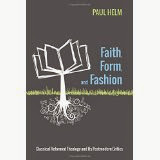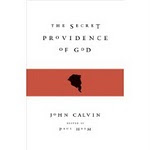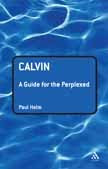The aim of this short piece is to emphasise a point about the conflict
between libertarianism and compatibilism, that there cannot be a plausible
‘argument from experience’ for libertarianism.
Think about the following case, which is meant to favour libertarianism,
from a leading proponent, the libertarian Robert Kane. He is
countering the frequently-made criticism made by compatibilists that such
libertarianism is indistinguishable from randomness or whimsy. He supposes a woman driving to work who meets
an accident and realizes that if she stops she will be late, but if she does
stop she may nevertheless be able to lessen the distress of those involved in
the accident. Kane says
[U]nder such conditions, the choice the woman might make either way will not be “inadvertent,” “accidental,” “capricious,” or “merely random” (as critics of indeterminism say) because the choice will be willed by the woman either way when it is made, and it will be done for reasons either way—reasons that she then and there endorses…So when she decides, she endorses one set of competing reasons over the other as the one she will act on. But willing what you do in this way, and doing it for reasons that you endorse, are conditions usually required to say something is done “on purpose,” rather than accidentally, capriciously, or merely by chance. (Robert Kane, ‘Libertarianism’, in J.M. Fischer, R. Kane, D. Pereboom, & M. Vargas (eds) Four Views on Free Will (Oxford: Blackwell Publishing), 5-43. (29, emphases in the original)
Some of this is reminiscent of the late C. A. Campbell’s view of
contra-causal freedom, a free act being one that is done from duty and against
the causal flow of desire. I won’t go into that view here.
When the situation is described, as Kane or Campbell describe it, as one having reasons or conditions, the compatibilist freely claps his hands with glee. It is obvious that the situation as described by Kane is easily incorporated into compatibilism. For compatibilism has no difficulty at all in allowing for conflicts in the self between one set of desires and another, or of a stalemate between the two settled in time by the preference for one of them; of willing a course of action as a result of settling the claims of competing reasons; of sudden decisions following periods of hesitancy and even of decisions, which when made, surprise the agent. All these are what we may call the phenomena of conscious choice, and cannot be used as an argument in favour of libertarianism. They are equally open to the compatibilist and the libertarian; when they are described as Kane describes them above then this is obvious.
When the situation is described, as Kane or Campbell describe it, as one having reasons or conditions, the compatibilist freely claps his hands with glee. It is obvious that the situation as described by Kane is easily incorporated into compatibilism. For compatibilism has no difficulty at all in allowing for conflicts in the self between one set of desires and another, or of a stalemate between the two settled in time by the preference for one of them; of willing a course of action as a result of settling the claims of competing reasons; of sudden decisions following periods of hesitancy and even of decisions, which when made, surprise the agent. All these are what we may call the phenomena of conscious choice, and cannot be used as an argument in favour of libertarianism. They are equally open to the compatibilist and the libertarian; when they are described as Kane describes them above then this is obvious.
But there is more. Libertarianism has the following that it has because it is
claimed that it provides a clear criterion of human responsibility, a necessary
and sufficient condition of it. But the usefulness of this criterion for that
purpose, establishing that a person is morally responsible and what he is
responsible for, is in fact impossibly difficult. For such a choice is weird, an instance of human beings having the power in a situation in which A is preferred to
choose B instead of A, all other states
of affairs except the choice being exactly unchanged. Claims of this type are empirically
unverifiable and require us to believe that each of us
possesses and exercises such a power when not the least piece of empirical
evidence is produced for it. Such evidence as there is is consistent with
compatibilism. Can you imagine this criterion of a free choice working in a court of law, or in the family?
This is to underline the point that indeterminism either lapses into an
account easily dealt with by the compatibilist, or it is not an empirical theory,
verified by an appeal to human experience, but postulates an indeterministic
choice a priori, as a metaphysical
postulate. But this way of putting things is not equitable.
Jerry Walls (who is not a friend of compatibilism any more than he is
a friend of Calvinism) has observed:
Compatibilists, moreover, like Pharoah’s magicians, seem capable of duplicating in their own terms every power and ability that libertarians claim their view distinctively grants to agents. (Jerry Walls ‘Why No Classical Theist, Let Alone Orthodox Christian, Should Ever Be a Compatibilist’, PhilosophIa Christi, 13, no.1 (2011), 75-104.
The presumption that libertarianism is the
default position, so common in current philosophy of religion, is clearly
visible here. Compatibilists are said to seem
to be able (by their dark arts) to duplicate
the supposed clear-as-daylight alternativity already in place, the status quo, like the hard-hearted magicians of Pharoah duplicated Moses's miracles. Presumably, indeterminists are
assumed to be friends of the people of God, like God-fearing Moses.
So I agree with the general point that Walls makes, except that it is back to front. Indeterminists are the hard-hearted Egyptian magicians. It is not that compatibilism does any duplicating, but that libertarianism duplicates with its claims that we that we all have a certain unique power,
the power of contrary choice. The trouble with this is that the gift of such choice is so
well-wrapped that it is impossible to get at it, and the gift employed and
enjoyed. We can never identify an alternative of libertarian choice.
Philosophers can define it and some of them hanker after it, but we can never
isolate it in practice. The situation is reminiscent of the famous passage in
David Hume’s Treatise of Human Nature.
For my part, when I enter most intimately into what I call myself, I always stumble on some particular perception or other, of heat or cold, light or shade, love or hatred, pain or pleasure. I never can catch myself at any time without a perception, and never can observe any thing but the perception… (Bk I,4,6 of A Treatise of Human Nature.)
‘I can never catch myself…without a perception’, Hume said. In the same sense the libertarian says ‘I can never identify textbook alternativity, without there be a reason for choosing one alternative or the other’. Libertarians cannot give an
example of a libertarian choice without falling into compatibilism. It is not
that we all know when we experience and use such an indeterminate choice, and then the pesky compatibilists come along and mock it up. The shoe is on the other foot.
Moreover, the operation of a divine decree such as Calvinists maintain does not take away such powers of choice with respect to creaturely causes, because the decreer also decrees that the end should come about by the person making up his mind himself in a state of ignorance as to what his choice may turn out to be.
It may surprise some than no less authentic a Calvinist than John Calvin himself says this:
Moreover, the operation of a divine decree such as Calvinists maintain does not take away such powers of choice with respect to creaturely causes, because the decreer also decrees that the end should come about by the person making up his mind himself in a state of ignorance as to what his choice may turn out to be.
It may surprise some than no less authentic a Calvinist than John Calvin himself says this:
Hence as to future time, because the issue of all things is hidden from us, each ought to so apply himself to his office, as though nothing were determined about any part. (Concerning the Eternal Predestination of God, (1552) trans. J.K.S. Reid, (London, James Clarke & Co. 1961, 171)









